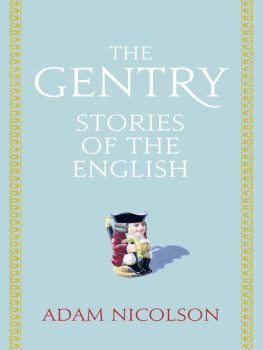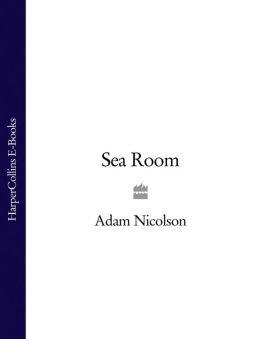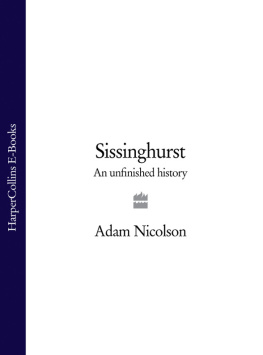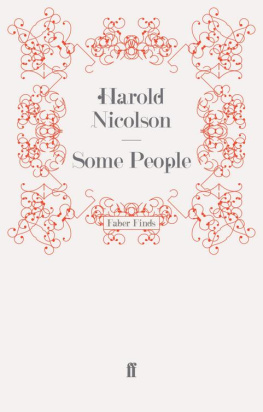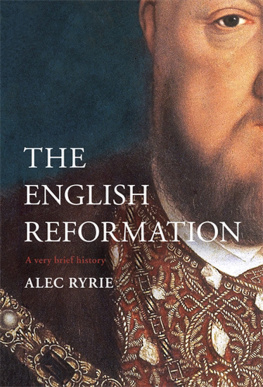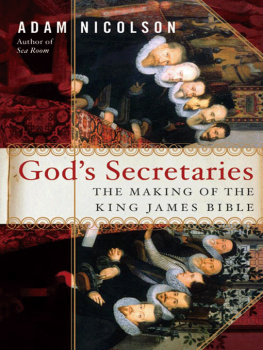Ungentle Gentles
No country has described itself so intimately and for so long as this one. The English have been the great self-recorders and England has preserved more of what its people have written about themselves than anywhere else on earth.1 Inevitably, millions of English men and women have lived with no record of their existence but the writings of the self-recordists the literate, the scholarly and the litigious, lovers and haters, accountants, manipulators, the worried and the triumphant, the gossips, the distant friends, people separated by business or ambition have often been kept by their descendants. That is why the English gentry are such an intriguing world to explore: they both wrote and kept, and because of what they kept they are the most knowable English there have ever been. They may well be the most knowable people that have ever lived. Only governments and navies have been so careful about their own past.
Over the six centuries this book covers, the gentry wrote their lives down. Most of their documents, it is true, have disappeared. Often only one side of a correspondence remains. Sometimes a sequence breaks off without explanation. Sometimes there is nothing but the recording, yet again, of the properties owned, the debts incurred, the credit given. Individual families take up tens of shelf-yards with their title deeds. But alongside that, quantities of letters and journals have also found their way to the great public repositories with which this country is blessed: not only the National Archives in Kew and the British Library in St Pancras, but the strings of County Record Offices, all of which are stuffed with heartstoppingly vivid and unregarded treasures.
The people who appear in this book wrote in private and the experience of their words on the written page remains mysteriously private. When you sit at a desk in Exeter or Newport, in Norwich or Bangor, with their words in front of you, there is no discreet mulberry-coloured rope holding you away from them. There is no glass over the pictures, no Please Dont Touch . The young men and women, the paterfamilias and the desperate nephew, the estate steward and the indigent younger brother, are all there with you in the room. Each letter or journal entry articulates its moment, not only in its words but in its physical form, the hurry or care with which it is written, the sense of politeness or intimacy, or rage. The unfolding of a letter from an envelope always seems to me like the opening of time itself. Nearly always they wrote on beautiful, handmade paper, in now fading brown ink, occasionally in blood, sometimes with a lock of hair folded up in a twist of the paper, once in these stories with the hair glued to the paper with a blob of sealing wax, sometimes in tears, when big blurring puddles have fallen on the ink. In one passage in this book, a grieving father wrote with his own tears, his silvery grey words now scarcely legible on the page.
In part, this book is a journey around that manuscript England, poking about in the national attic, but twinned to paper is another substance just as central to the life of the gentry and in constant dialogue with it: earth. This is a book about land, or at least about the meeting of land and paper. There is nothing mysterious or mystical about this. For most of English history, land was the principal means of production. Land was the national industry. Even as late as 1730,2 three-quarters of the population derived their livelihood from it and half was directly engaged in farming. By 1800 that proportion had dropped to a third, by 1850 to a fifth, by 1900 a tenth, by 1970 a fortieth and by 2000 a hundredth. Our distance from the realities of land is the biggest obstacle we have in empathizing with the past. We no longer have an intuitive understanding of the centrality of the cultivated earth to the life systems of England, land not only as a way of growing food but for the gentry a source of income, in the form of rent, or the sale of produce grown and sold; and as a supremely secure asset, safer than houses. For the seventeenth-century political theorist James Harrington, the Foundation of Property be in Land: but if in Money, lightly come, lightly go .3
Land was also more than money. On the frontispiece of The English Gentlewoman , Richard Brathwaits 1631 etiquette book for ladies, his ideal pupil is depicted with a motto floating beside her, saying, Grace my guide, Glory my goale. But in The English Gentleman , published the year before, his touchstones are Pes in terris, spes in caelis (Feet on the lands, hope in the heavens). Land was the foundation for this life and in some ways a foreshadowing of the life to come. It was the realm through which landowners could extend their presence into a seductive display, a theatre in which they could perform, a playground on which they could take their exercise and a visible, tangible and mouldable anchor in the world of men. Much of this book describes the hyphenated reality of a family-in-a-place, a genetic enterprise based on land which over generations (if you were lucky) was owned, loved, used, made, re-made and, if need be, defended against others. Gentry priorities for order, settlement and continuity, for visible wellbeing and a hierarchical community of which they were the local summit could all be read in the landscape, in the field systems, manor houses, gardens, orchards, churches and villages of rural England. These settlements were not arranged on purely ergonomic or financial grounds. They were self-portraits of the families that owned them. Gentry landscape was autobiography in earth.
England is covered with these deeply symbolic gentry places and they form the counterpart to the privacy of the manuscripts. Landscape was the gentry face; archives the gentry heart. Many houses do survive, often with the parish churches next to them, with the gentry tombs in their own chapels at the east end, often beautiful and highly articulate memorials to a forgotten ideology. But gentry existence was less well funded and more vulnerable to change and failure than that of the great aristocrats and so their houses and the surrounding skirts of landscape do not always survive intact. I have walked the lands of all the families in this book4 and it is a poignant pleasure to beat your way through an overgrown wood, or to walk across the stubble of a just-harvested wheatfield to find nothing but a soggy hollow, or a single ivy-bearded wall, while knowing in the most intimate detail from their papers the events that occurred there three, four or five centuries before. Whole destinies unfolded where now there are only a few crabbed trees or the lingering aftersmell of fox.
Reality is intimate and rather than attempt a heroic and Olympian survey of the whole gentry world, I have taken a sequence of twelve individual gentry families, each at a particular crisis in their lives. I have chosen them only if they were richly articulate about themselves, and if their archives have somehow survived. Although there are oceans of ordinariness here, each family is not quite ordinary; each throws a slightly different sidelight on to the gentry phenomenon. Their lives are highly individual but I have lined them up, like a series of organ pipes, to make a history of England over the last six hundred years, variations on the same tune played across six centuries.
Each family has fifty-odd years in the spotlight, usually an arc of three generations: parents, the protagonists and their children. Some of the histories overlap with others, some cover longer time-spans, but nearly all are lessons in survival: how to keep going when the world wants to do you down; how to make the best of the opportunities that are on offer; how to manipulate others; how to make government and the law work in your favour; how to resist or destroy your enemies. One or two are lessons in defeat: how to get it wrong, what happens when resolution fails, or more importantly, when a family loses its grip on the nature of reality. Together, they are, in effect, a self-portrait of England, or at least of its central and culture-forming class. The people in this book are neither the poor nor the great grandees of the country, but the responsive and continuous middle of Englishness.

